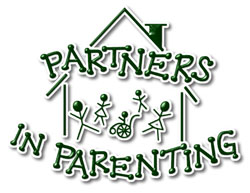Attachment the key topic at parenting conference
Attachment parenting was the focus of the Partner’s in Parenting conference, March 1st. The conference was a result of a partnership between Boundary Child Care Resource and Referral, the Rock Creek Medical Society, School District 51 and West Boundary Elementary.
The keynote speaker was Terri Elwood from Kelowna, who is certified through the Neufeld Institute.
Elwood shared that attachment is what good parenting looks like for both preschoolers and adolescents. Fifty interested parents, preschool teachers and other caregivers from the Boundary and Kelowna area braved the chill in the Rock Creek Elementary gymnasium to listen to Elwood discuss Understanding Preschoolers: What They Need From Us.
Elmwood stressed the importance that crying plays in optimum emotional development for preschoolers.
She passed around a handout called “Preschoolers: They really are different! ” which identified the three basic shortcomings of the preschooler. That included an untempered nature, that they are inconsiderate and that they have separation problems. She also identified three basic needs: true play, true rest and true tears.
Elmwood said that by understanding this, child caregivers would be better equipped to offer support. The tears, she explained are necessary, especially when they are up against something that can’t be changed. They are evidence the child is adapting and developing the resilience to handle things they can’t change.
Elwood rebuked the four current types of discipline for preschoolers which are: consequences, separation (time out), alarm-based (threats), and reasoning. She explained that the practices are futile as the child is not emotionally or developmentally able to understand or cooperate, causing them emotional hardening and possible aggression.
To manage the everyday problems of the preschooler, Elwood has developed the ABC’s of discipline:
· Addressing the root issue
· Bridging the problem behaviour
· Compensating for immature behaviour
A child grounded by attachment to the caregiver, she assured, will be far more likely to cooperate.
Elmwood referred to attachment again in the afternoon handout “Teen Sexuality”, which is based on the theories of Dr. Gordon Neufeld.
“Deep attachment to caring adults (and) parents is the best prevention for early sexual involvements,” she stressed. “The adolescent period is the time for children to develop a strong sense of self.”
She went on, “Teens continue to need their parents as a safe place for separate functioning so that they can relate to peers without loss of individuality or loss of adult attachment.” She also stressed that the influences teens face from peers and social media can delay or stop emotional growth.
“Safe sex should include the emotional safety of kids, not just pregnancy prevention,” said Elwood. “The best preparation for healthy sexuality is a strong sense of separateness, which in turn is the fruit of warm fulfilling attachments to parents.”
It was the 17th Partners in Parenting conference.






















